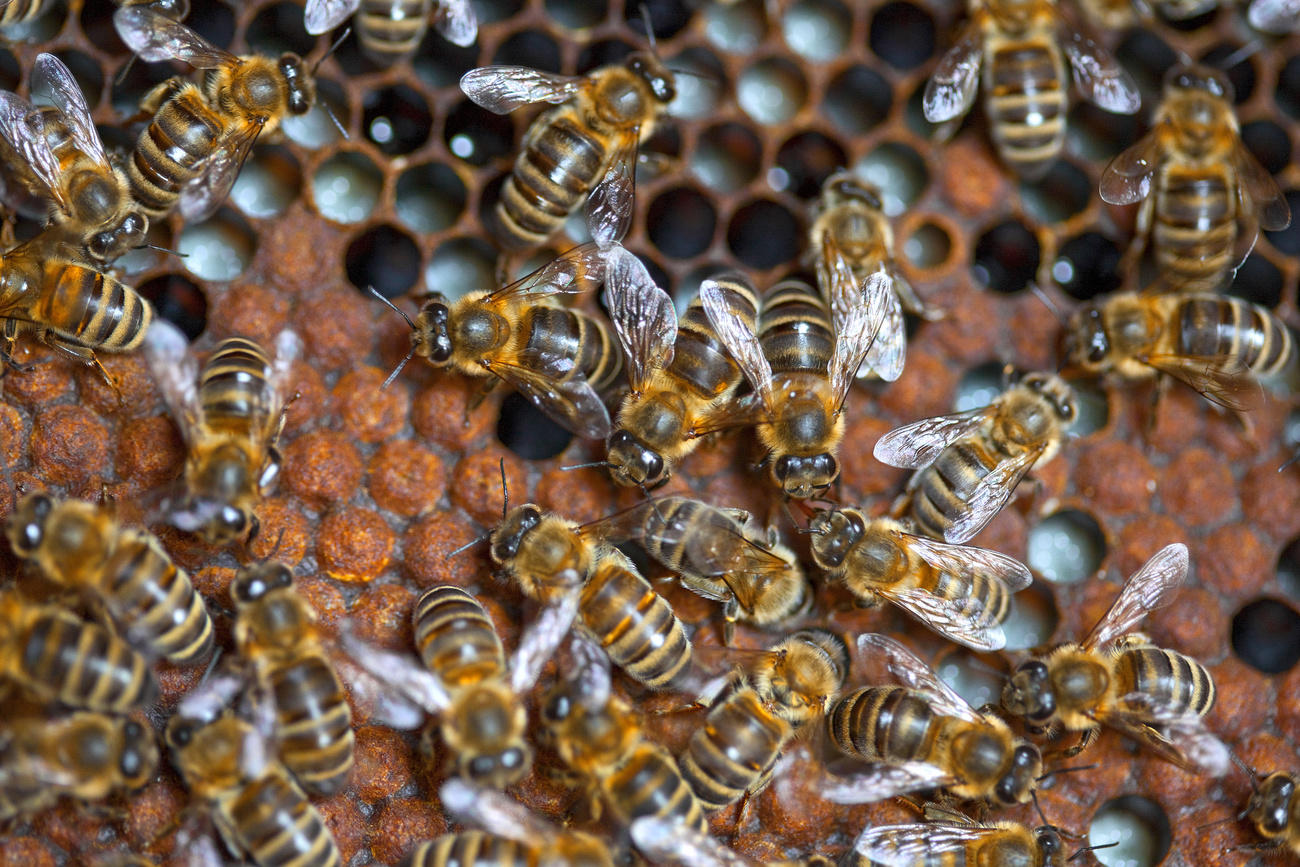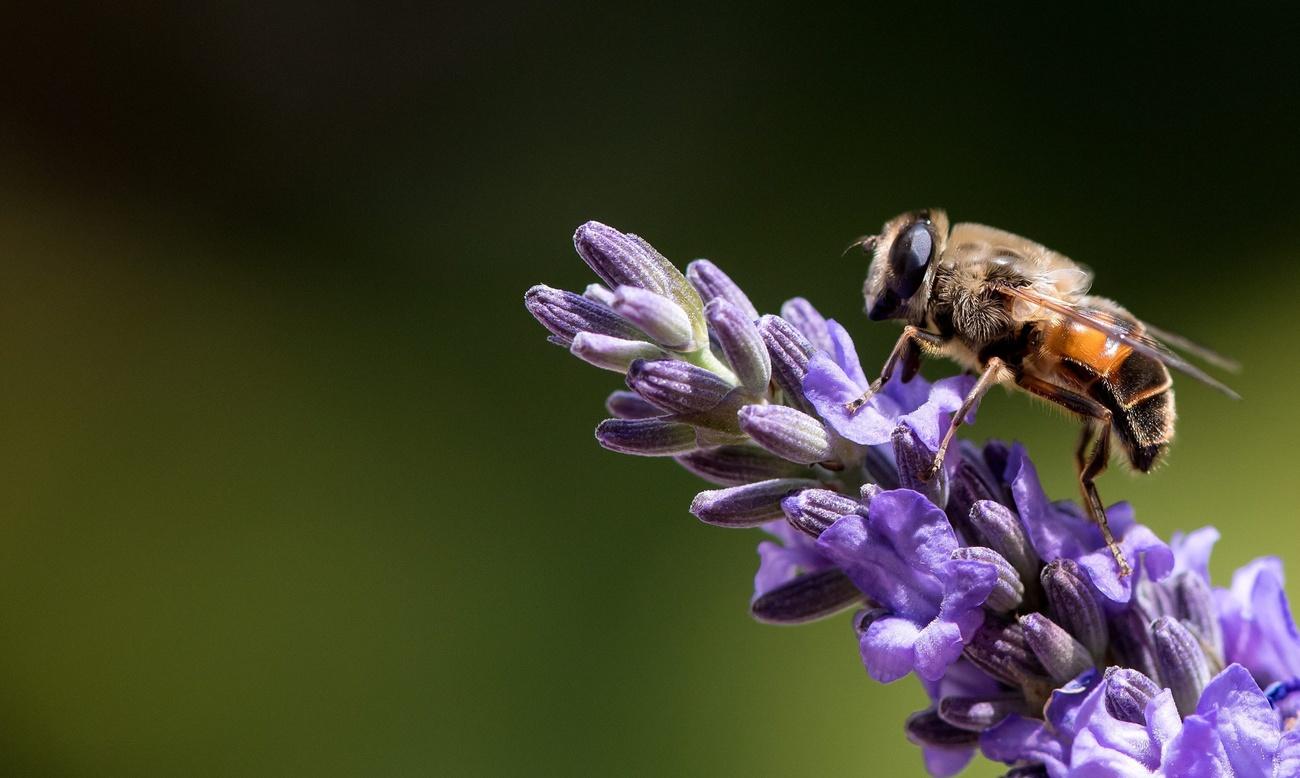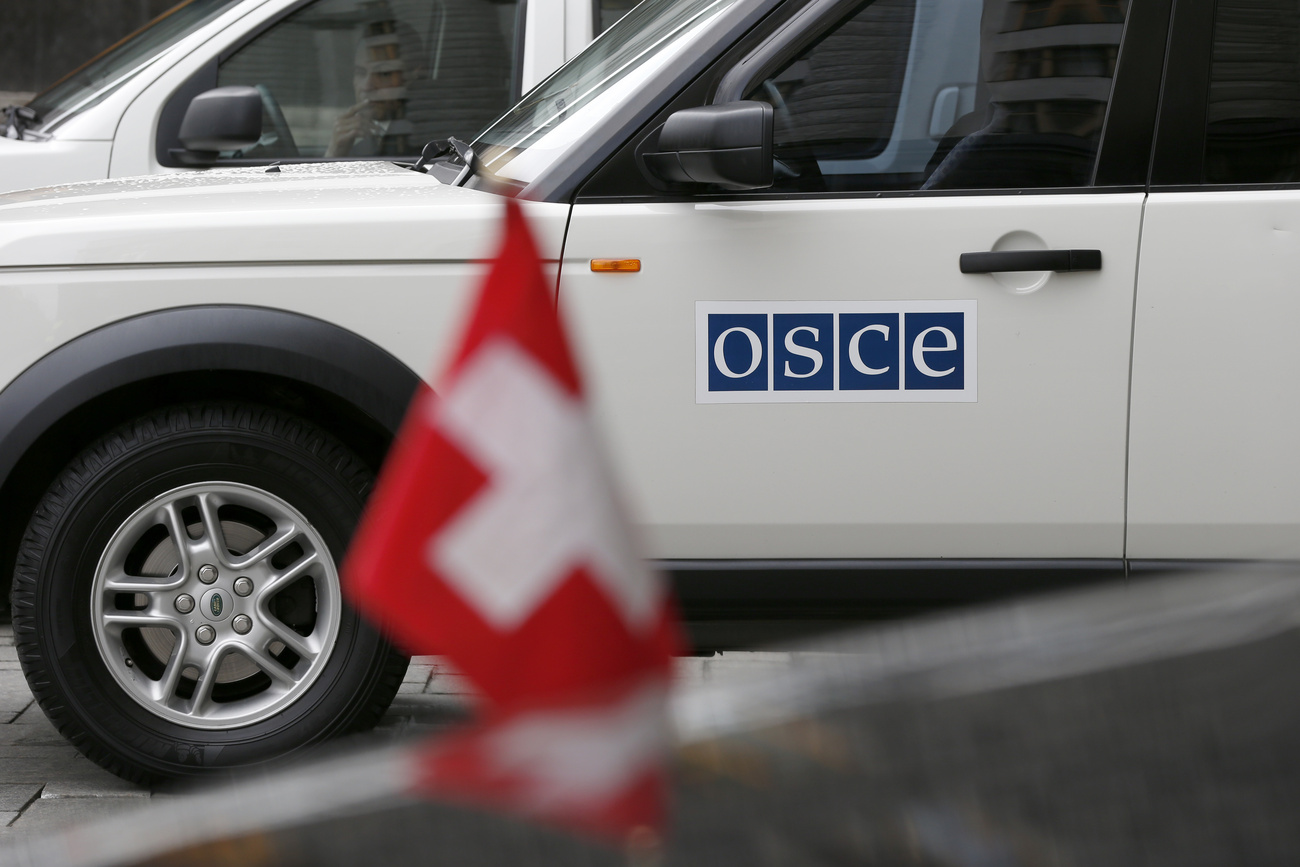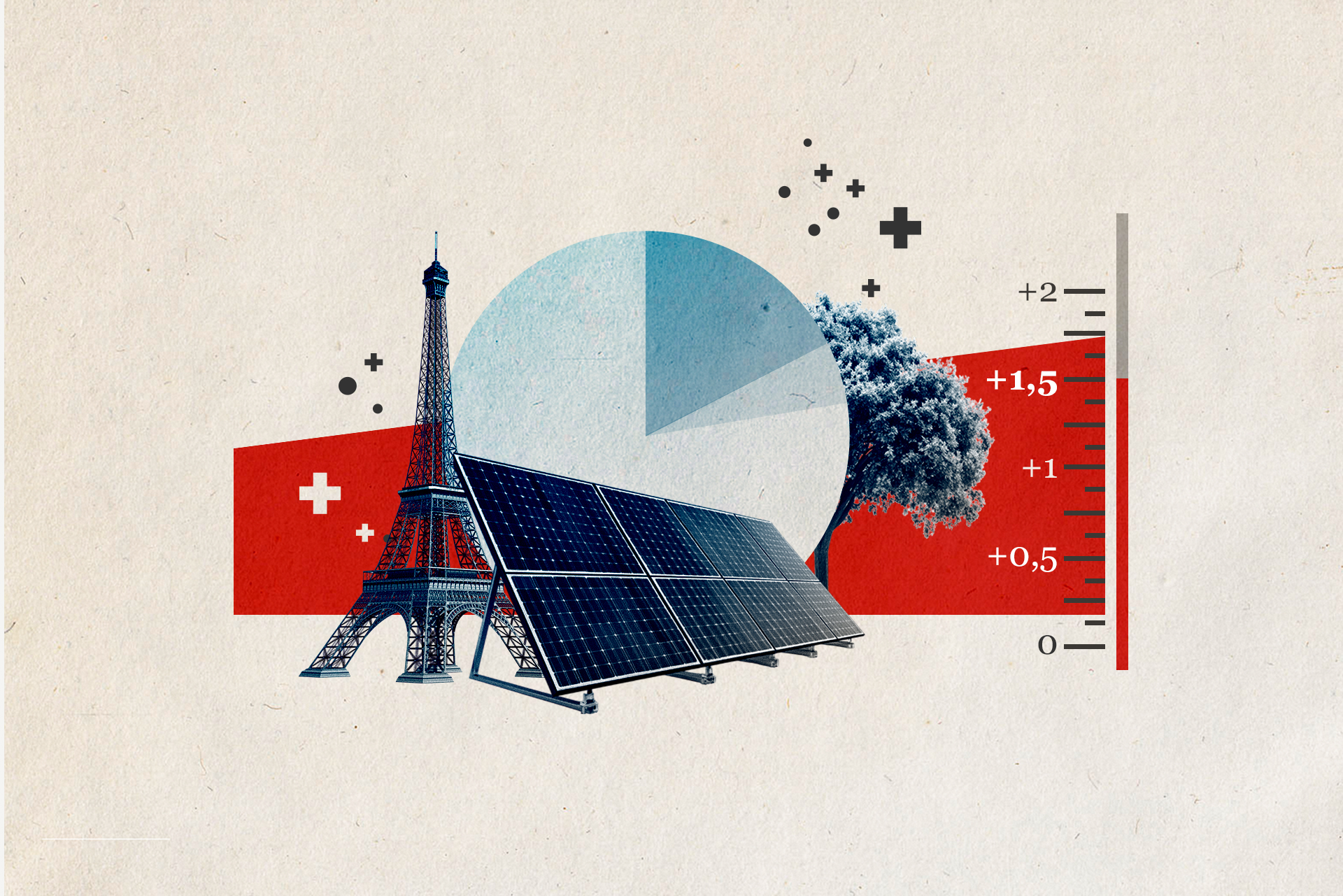
Bee smuggler busted after high-speed police chase

A 61-year-old German man has been caught trying to smuggle 12 bee colonies into Switzerland in his car.
The man tried to enter Switzerland on Sunday at the border crossing in Bargen, northern Switzerland, the Federal Customs AdministrationExternal link said on Wednesday.
Because he had neither a permit nor customs papers for the bees he was turned away, but a short time later he tried his luck at the St Margrethen crossing in northeastern Switzerland, on the Austrian border.
When customs officials stopped him for a check not long after after entering Switzerland, the man turned his car around and sped off. The officials followed in hot pursuit with lights and sirens blazing. The man was eventually caught near the border.
The 12 bee colonies were found in the boot of the car and were confiscated on instruction of the cantonal veterinary office. Since the bees’ origin was unknown and no health certificates existed, the bees were destroyed by the responsible bee inspector to avoid the introduction of bee diseases.
The man had to pay the VAT and was fined. He was also reported for obstructing official duties.

More
Parliamentary group on bees is launched in Switzerland

In compliance with the JTI standards
More: SWI swissinfo.ch certified by the Journalism Trust Initiative



























You can find an overview of ongoing debates with our journalists here . Please join us!
If you want to start a conversation about a topic raised in this article or want to report factual errors, email us at english@swissinfo.ch.